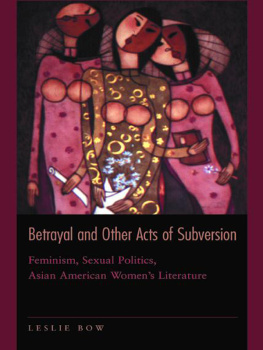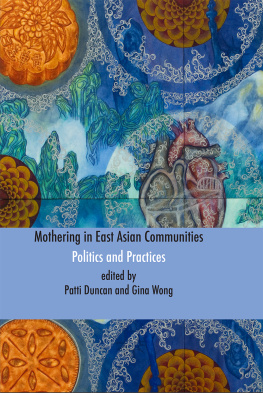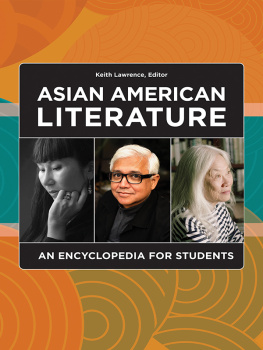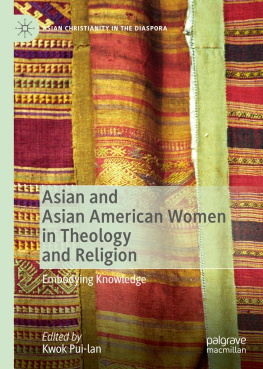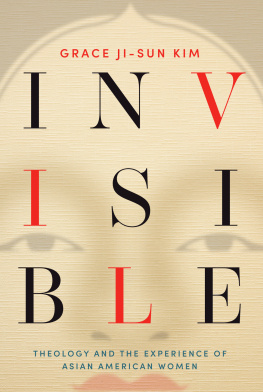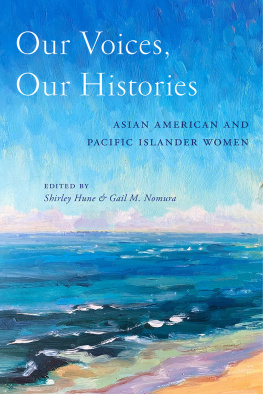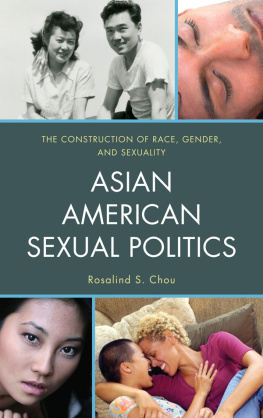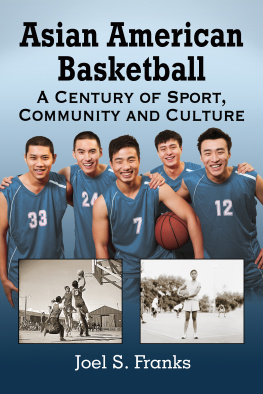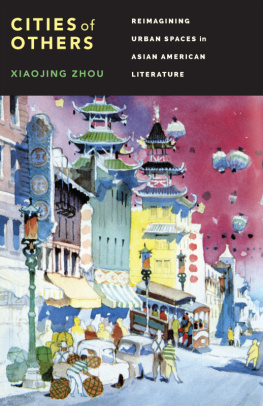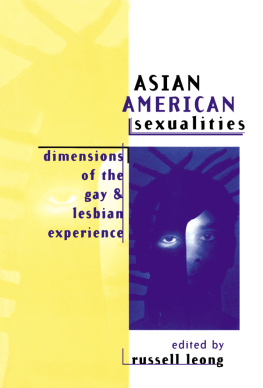Acknowledgments
THIS PROJECT could not have been completed without the support and inspiration of mentors, friends, colleagues, and family members. I am indebted to Akasha Hull, Helene Moglen, and Jose David Saldfrar, whose guidance and commitment brought this project to fruition and whose scholarship serves as a model for my own. I want to thank Nora Okja Keller and Laura Hyun Yi Kang for their inspiration and friendship at the University of California, Santa Cruz. Renny Christopher, Ellen Hart, Ekua Omosupe, and Miriam Wallace all offered me valuable feedback and encouragement. I am most grateful to Elena Tajima Creef, whose unequivocal support is equaled only by the shining example of her own work in Asian American Studies.
My heartfelt thanks goes to C. Lok Chua, Tassie Gwilliam, Wendy Hesford, Daniel Kim, Elaine Kim, Wendy Kozol, Josephine Lee, Robert Lee, Frank Palmeri, Sangeeta Ray, Malini Johar Schueller, Mihoko Suzuki, Lindsey Tucker, Sau-ling Wong, and Robyn Wiegman, who graciously read and commented on parts of the manuscript in its various manifestations. Your astute feedback has sustained and motivated me throughout the writing process. I wish to thank Peter Bellis, Shari Ben-stock, Suzanne Oboler, and Sandra Pouchet Paquette for their support and collegiality. To those who make up the Humanities Colloquium at the University of Miami, especially David Glimp and Michael Rothberg, your commitment to intellectual life provided necessary nourishment and engagement. To Janice Okoomian, Susette Min, and Lynn Ink: your work challenged me to give my best. I cannot thank Thomas LeBien at Princeton University Press enough for his professionalism at a crucial stage of this manuscript's production. The artist Huong graciously assented to the reproduction of her painting, Students, to adorn this book's cover. I am grateful to Wendy Law-Yone, Fiona Cheong, and Jade Snow Wong for their willingness to talk with me about their work.
To my parents, Willie and Sue Mae Bow: without your sacrifices and love this work would not have been possible. Julian Ty continually entertained and delightfully diverted me in the course of this project.
Most of all, Russ Castronovo stimulated and challenged this work and I am grateful for his energy, faith, and love.
This book was completed with the generous fellowship support of the Office of the President of the University of California, the Center for Cultural Studies and Oakes College at the University of California, Santa Cruz, and the James Knight Junior Faculty Fellowship at the University of Miami. I would also like to acknowledge grant support from the Dean of the College and Dean of the Faculty at Brown University; the Board of Literature and the Feminist Studies Organized Research Activity at the University of California, Santa Cruz; and the Max Orovitz Summer Research Awards at the University of Miami.
Leslie Bow
Miami, Florida
Afterword
Multiplying Loyalties
THE ACCUSATION OF BETRAYAL introduces a rupture into collective association; in doing so, it suggests the inadequacy of identity categories to represent subjects. The texts I have engaged here use sexuality to interrogate political alliance and expose the socially constructed and politically invested nature of affiliation. In proposing that identifications (and thus identities themselves) emerge through contestation, my inquiry inherently questions identity as a stable foundation for truth claims. This questioning is perhaps disappointing to those who, having noted the constituency my subtitle invokes, have turned to this book as a source of empirical data about Asian American women.
While writing this book, I was reminded of how this desire for hard facts underlies a traditional sense of liberal education, bringing to light the seemingly antithetical intentions of teaching and criticism. In a commentary column of the student paper, a freshman biology major in my class on Asian American literature urged fellow students to take humanities courses like mine as a corrective to what had been left out of their educations. Emphasizing the importance of knowing a repressed history, she wrote, [This class] is about reading an eclectic collection of stories, plays, poems and essays and becoming a more informed and cultured person.In my opinion, everyone should take at least one humanities class here at college. After all, it is the best deal you could get. Where else are you going to find an English, history, anthropology, sociology and psychology class in one? (Parul Khator, Humanities Classes Reveal Unknown History. Miami Hurricane, 30 April 1999).
I was gratified by her validation; I want my students to be those informed and cultured persons that my teaching might help them to be. But I also want them to think critically about how history is represented, to be aware of what has been selectively disseminated for the record and how rhetorical arguments inform that record. Her comments invited me to think about my goals in teaching and writing about a literature with a clear investment in the material world.
The texts analyzed in this book have one thing in common beyond their various treatments of the shifting and at times treacherous nature of loyalty and allegiance; they all engage realist strategies for storytelling. This may not be surprising given that the marketplace for ethnic literature was initially governed by a desire for ethnographic reportage, making autobiography a standard genre in the field. Many of the works I have addressed also share an activist intent, whether as an insider's account of history or as critical commentaries on continuing sociopolitical conflict. This emphasis on political intervention creates a specific challenge for interpretation. Because realism has the appearance of being documentary, its methods of persuasion can often remain invisible as the details and drama of events drive the narrative forward. Invocations of a world in crisis can subordinate rhetoric, rendering communication seemingly transparent and unmediated. When a text converges with history, accuracy and authenticity are more often at stake than the ways narrative structure creates a text's persuasive appeal.
Suggesting that rhetorical analysis is not always vigorously applied to the evidence that documents oppression and resistance, Wendy Hesford and Wendy Kozol call for an interrogation of the realist strategies that continue to secure legitimacy for certain truth claims (Hesford and Kozol, 5). In the opening essays of Feminists Theorize the Political (1992), Joan Scott and Judith Butler attempt to reconcile the activist premises of, for example, Women's Studies, against postmodern recognition of the discursive nature of experiential evidence. Put another way, is a loyalty to realism necessarily a betrayal of postmodern skepticism? In mediating between the discursive and material, Betrayal and Other Acts of Subversion is concerned with literary portrayals of women's experience, but more specifically with the gendered nature of women's political appeal. This book attempts to locate the social intervention of Asian American women's literature within its methods of rhetorical persuasion. My emphasis on how the scaffolding of narrative structure itself produces meaning has been intrinsic to my strategy of reading.
Yet my own critical endeavor might be said to deauthorize subjects in an ironic parallel to the way in which the accusation of betrayal itself undermines the subject's authenticity. As Butler notes on claiming queer as a political identity, [T]he terms to which we do, nevertheless, lay claim, the terms through which we insist on politicizing identity and desire, often demand a turn againstconstitutive historicity.As much as identity terms must be used,these same notions must become subject to a critique of the exclusionary operations of their own production (Butler 1993, 227). As Butler implies, the challenge is to articulate theoretical positions that question the emergence of the subject and relieve it of foundationalist weight while at the same time presuming a subject who acts. This book has thus sought a method of reading that acknowledges literature's commitment to the material worldand the real women who people itwhile being sensitive to the contingencies of its own production and reception. I hope this work has established an argument for the term Asian American women even as postmodern skepticism marks the use of identity categories as a necessary capitulation. I have thus insisted on highlighting texts by women as a way of marking their activist commitment and as a reminder that the stakes for generating gendered discourses are higher for women. However, the broadest suggestiveness of my readings cannot circumvent the historical specificity of each ethnic context, nor would I want to effect bland pronouncements on Asian American women as a constituency. Emphasizing rhetorical convergences across Asian ethnic texts is not meant to sidestep issues surrounding the inevitable insupportability of invoking this broad pan-ethnic category. Rather, I hope to inscribe Asian American women's agency, for one, as an authorial practice of textual manipulation not in order to privilege intentionality, but to situate Asian American writers as agents of ultimately political acts, acts that in turn exhibit awareness of how women have too often been positioned as mere objects of history.
Next page
